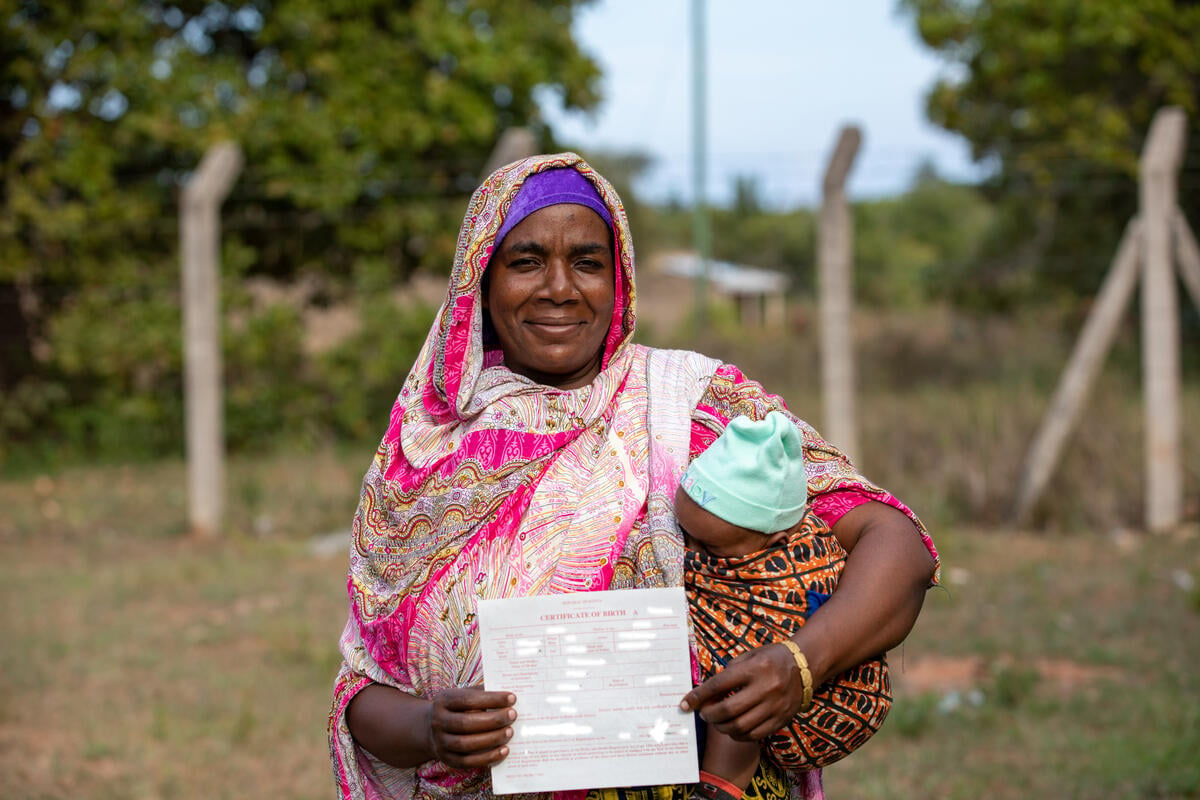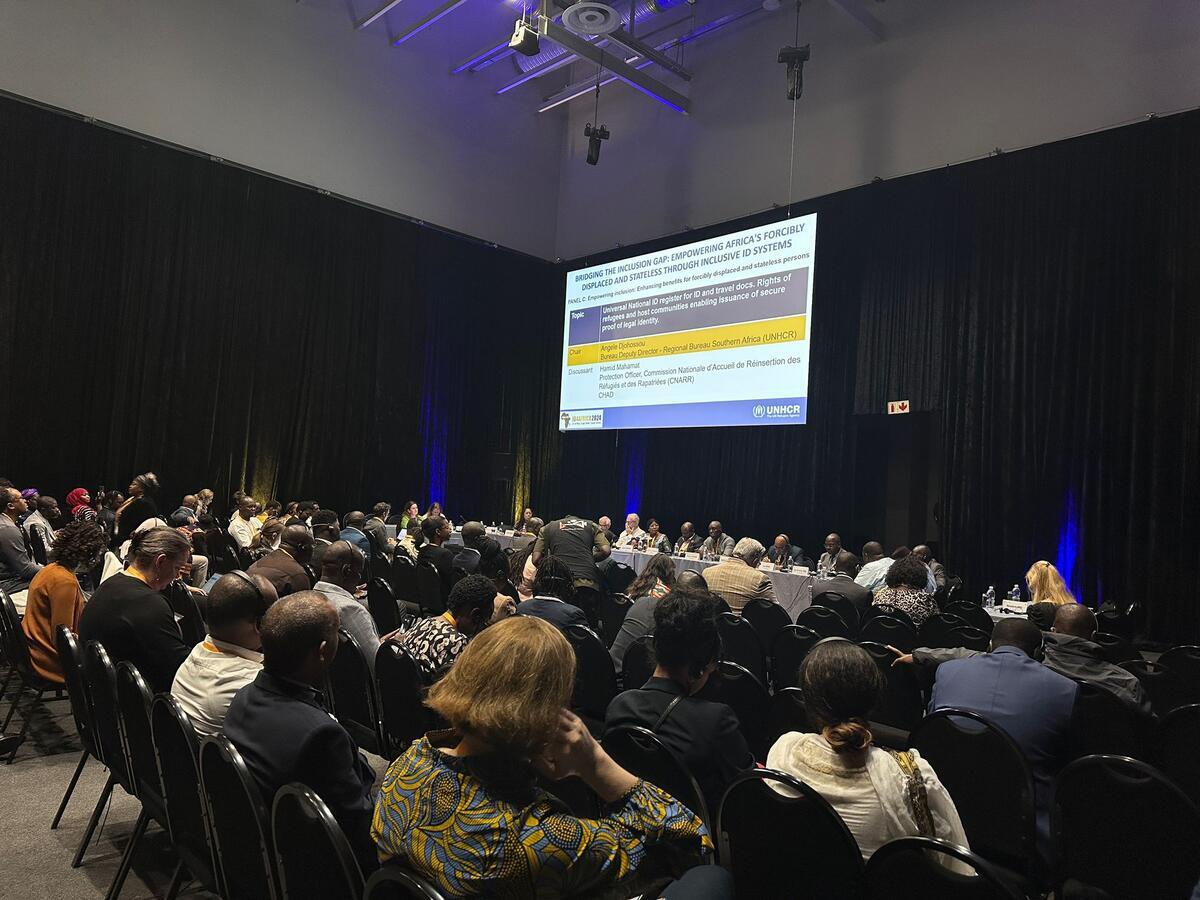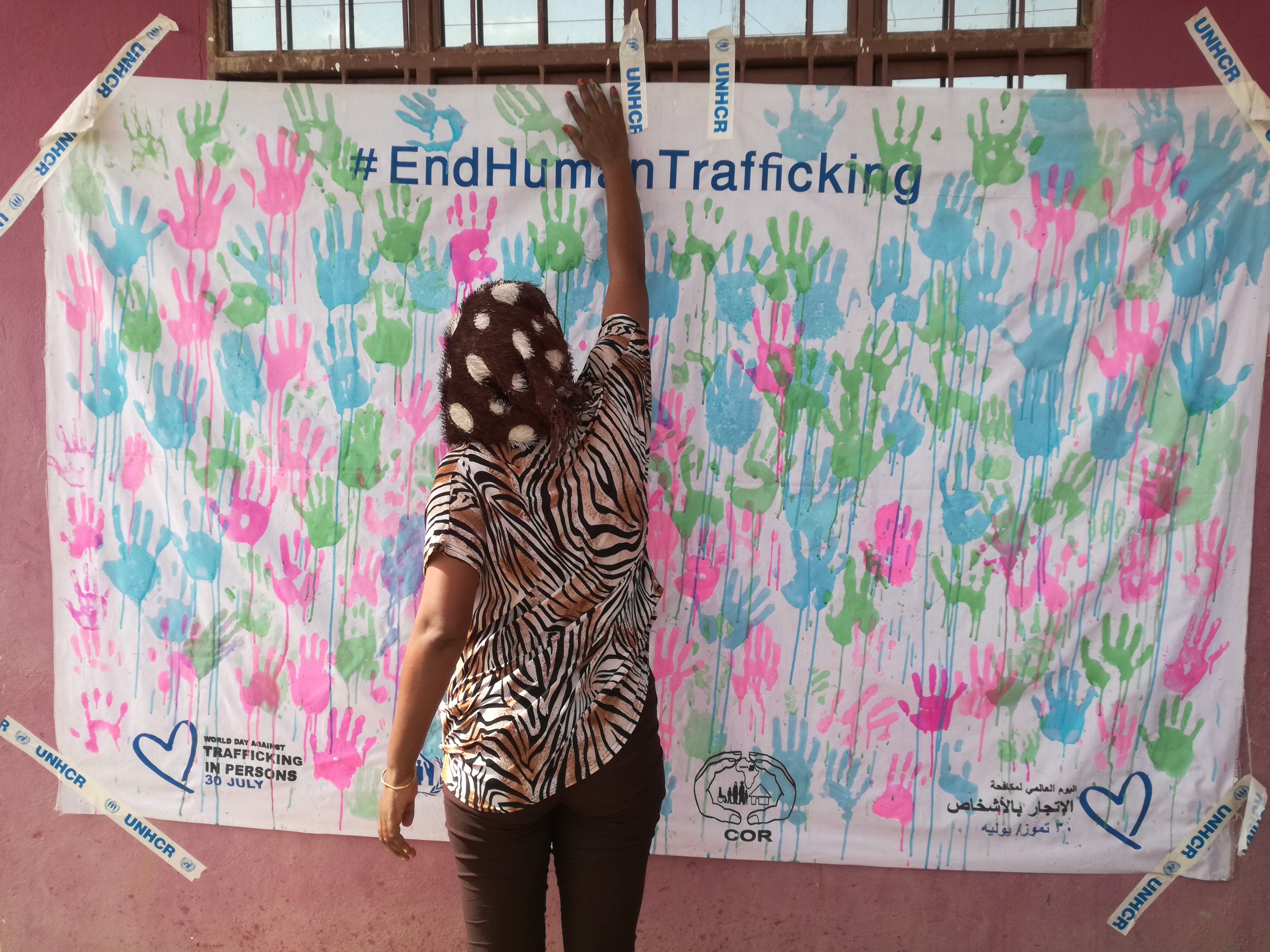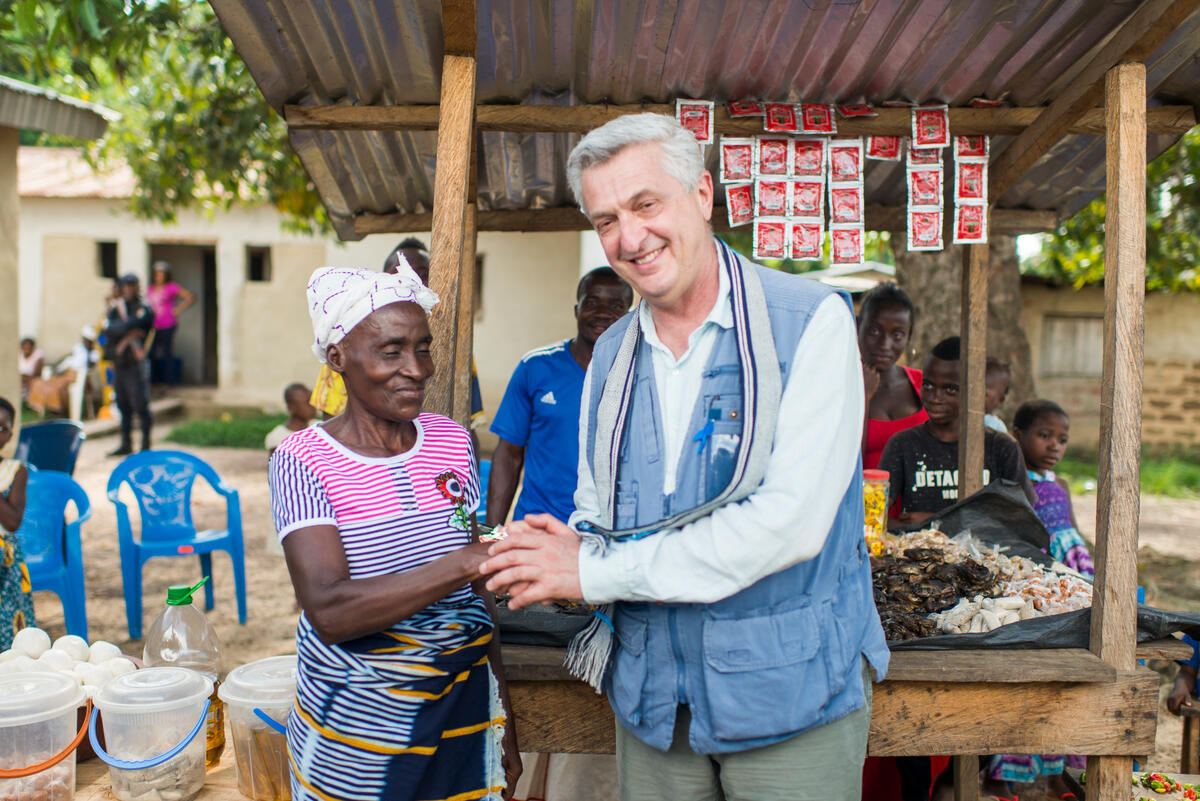At least 20,000 flee fresh violence in Côte d'Ivoire capital, Abidjan
At least 20,000 flee fresh violence in Côte d'Ivoire capital, Abidjan

ABIDJAN, Côte d'Ivoire, February 25 (UNHCR) - At least 20,000 people fled a conflict-torn district of the Côte d'Ivoire capital of Abidjan on Friday and sought shelter in other parts of the tense city.
UNHCR staff reported a massive exodus of people from Abobo, following two days of armed clashes in the northern suburb. "We estimate that at least 20,000 to 30,000 may have left Abobo this morning," said UNHCR spokesperson Helen Caux. Smaller numbers had left Abobo from Tuesday to Thursday.
"Many people told us that they will try to find transportation to go to their villages of origin," Caux said, adding that UNHCR teams "observed continuous flows of women and children, and some men, leaving the fighting areas in Abobo by foot via two main exit roads."
UN High Commissioner for Refugees António Guterres appealed for urgent help for those fleeing Abobo. "This is fighting in the heart of a major African city. It is imperative that the fighting stop so that civilians can brought out and to safety," he said. "The parties involved must do everything possible to avoid any further endangering of the population."
UNHCR staff in Abidjan said women carrying their babies and small children looked exhausted after walking several hours under the hot sun. One woman said she only had time to take her babies' clothes with her.
"People told us they were very afraid because of the fighting of the past two days. They reported that heavy artillery was used on Thursday night. They also said that they feared being caught in cross-fire," Caux said.
Most of those on the road were seen carrying bags on their heads or pulling small cases with their belongings. Many had been walking for two or three hours and were tired, hungry and thirsty. Some had forgotten their identity documents in the rush to leave.
Caux said that although everyone living in Abobo seemed to want to leave, the most vulnerable, including the elderly, pregnant women, the handicapped and sick people, were stuck in the neighbourhood because they could not move without help.
"UNHCR is extremely concerned by the plight of these people and urges both parties in conflict to refrain from targeting civilians," said Caux. The political situation in Côte d'Ivoire has become increasingly tense since the presidential election in November, with rival candidates Laurent Gbagbo and Alassane Ouattara both claiming victory.
Meanwhile, many of those interviewed by UNHCR as they fled Abobo said they no longer felt safe. "There was sporadic shooting this morning, but yesterday was the worst," said a 45-year-old teacher. "I only had time to take some clothes and some cooking utensils."
This man planned to seek shelter in a town to the east of Abidjan, but said "I want to return to my home in Abobo as soon as the situation gets back to normal and the fighting stops." Others said they hoped to take a bus out of the city.
Thirty-five-year-old Lucien said there had been shooting all day Thursday in Abobo. "One of my friends called me and said we should leave right away," he said as his exhausted wife and two children looked on anxiously, carrying bags on their heads.
UNHCR and its partners will continue to monitor the population movements out of Abobo and other areas in order to respond as quickly as possible to this emergency.
In the west of the country, the town of Toulepleu is reportedly empty after the inhabitants started to flee to the border with Liberia from Thursday evening. They feared fighting between the armed supporters of the presidential rivals. Most people in the towns of Zouan Hounien and Bin Houye had also reportedly left for the border.








